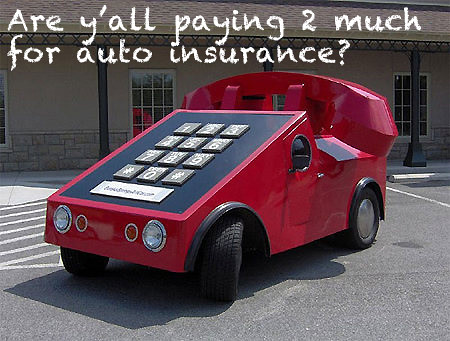What Your Car Insurance Company Doesn't Want You to Know
Auto insurance is required for drivers in nearly every state. It is vitally important to carry proper insurance for the protection of both your vehicle and the people who ride in it. The costs of medical attention for injured parties and to repair a damaged car can be staggering. These costs are the responsibility of the person at fault in an accident.
Many insurance providers will promote special discounts for drivers, make claims of lower insurance rates if you switch your policy to them, and ask you to combine coverage types in order to save money. With all these companies competing for your business and the different types of coverage, this can get confusing for the typical consumer.
What they don't tell you is how you can avoid problems with claims, how to get the most money when you file a claim, and why certain insurance types may be unnecessary. It is always a good idea to know the laws in effect where you live and how they pertain to each type of auto insurance protection.
Switching Insurance Providers
Car insurance is not like a loan or lease. You can cancel a policy at any time or switch to a new provider without having to pay a penalty. Even if you pay your insurance months in advance, policies in force can be canceled.
Some insurance providers may not pay you a full refund for insurance already purchased. If you pay for six months of insurance coverage in advance, the prorated refund may be less than what you are expecting. This is not against the law, and insurance shoppers should ask about the refund policy before purchasing.
Optional Insurance Coverage
If personal injury protection and uninsured motorist protection is required in the state where you reside, quotes given by the company or agent will automatically have this figured into the coverage. The monthly premiums will reflect the addition of these coverage types. If these types of coverage are not mandatory in the state where you live, agents are allowed to ask you if they should be added to the policy.
You are under no obligation to purchase PIP or UM if they are not required by state law. Your own medical insurance may be sufficient to cover the cost of injuries requiring immediate medical attention, making PIP less valuable on a policy.
Auto rental insurance may already be activated if you use a credit card. Many credit card companies offer this at no charge, and the insurance covers most types of damages. Buying this insurance separately can be very expensive.
Compensation For Victims
If you are involved in an accident caused by someone else, his or her liability insurance is supposed to cover your medical expenses and damages to your vehicle and property. Many states have laws that require your own insurance company to pay for vehicle damage should the at-fault driver's insurance company refuse to pay on the claim. Check your state insurance laws or ask an attorney in case this should happen to you.
Recorded Statements And Claims Adjustors
You are under no obligation to give any statement to a claims adjustor. If you are in an accident caused by someone else, always ask an attorney to review any type of written material given to you and understand your rights in a personal injury case. Quickly signing off on an adjusted claim is exactly what the insurance company wants you to do.
These adjusted claims are nearly always too low and do not take into account the pain and suffering and other damages of an accident victim. The insurance company may pressure you to sign the claims agreement as quickly as possible in order to limit their expenses and financial liability.
The team at DiscountCarInsuranceQuotes.net provided this article. On their site, you can get more useful insurance tips, learn about discount car insurance companies and compare rates from major insurers.
More to Read:
Previous Posts:




